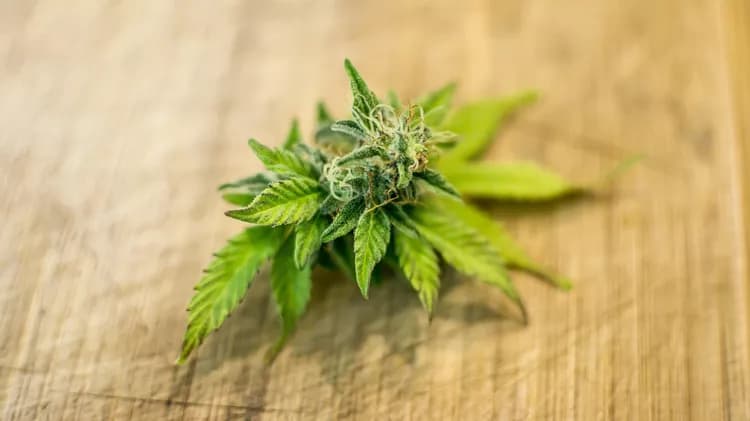
People Who Use Medical Marijuana More Likely To Use And Misuse Other Prescription Drugs
Can medical marijuana help to fight the opioid epidemic? Many believe that it can. But a new study finds that people who use medical marijuana actually have higher rates of medical and non-medical prescription drug use -- including pain relievers. The study appears in the Journal of Addiction Medicine, the official journal of the American Society of Addiction Medicine (ASAM), published by Wolters Kluwer.
Rather than being at lower risk, people who use medical marijuana may be at higher risk for non-medical prescription drug use, suggests the study by Theodore L. Caputi, BS of University College Cork's School of Public Health and Keith Humphreys, PhD, of Stanford University. However, an accompanying commentary questions whether medical cannabis is the cause of higher prescription drug use, or whether other factors explain the association.
Does Use of Medical Marijuana Increase or Decrease Prescription Drug Use?
The researchers analyzed more than 57,000 responses to the 2015 National Survey on Drug Use and Health. Participants were asked about medical and non-medical ("inconsistent with doctor's instructions") use of prescription drugs. The survey also asked about marijuana use, including whether it was recommended by a healthcare professional. The survey identified 776 people who used medical marijuana -- about 1.4 percent of all responders.
People who used medical marijuana were more likely to say they had used prescription drugs in the past year. They were about 60 percent more likely to report any prescription drug use, relative to those who did not use medical marijuana.
People who used medical marijuana were also more than twice as likely to report non-medical use of prescription drugs, including pain relievers, stimulants, and tranquilizers. "Non-medical use of pain relievers is of particular interest because of pain relievers' role in the opioid overdose epidemic," Mr. Caputi and Dr. Humphreys observe.
Higher levels of non-medical prescription drug use by people who used medical marijuana persisted in an analysis limited to people who used prescription drugs. The researchers write, "This suggests that the elevated risk for prescription drug non-medical use among people who use medical marijuana cannot be ascribed simply to their having a medical concern or greater access to prescription drugs."
Previous studies have reported that states where medical marijuana is legal have lower rates of medical and non-medical prescription drug use and related harms -- including opioid overdose. "These reports have led many to believe that use of medical marijuana is a protective factor against non-medical prescription drug use," Mr. Caputi comments. "However, individual-level inferences cannot be made using the ecological studies cited frequently in the debate over medical marijuana."
Mr. Caputi notes the lack of large-scale follow-up data on whether patients are using cannabis together with or in place of prescription drugs. However, he adds, "Physicians and practitioners should know that, from cross-sectional data, medical marijuana use is positively associated with non-medical prescription drug use.
"Our findings don't prove a causal connection between marijuana and opioid use, but they do suggest physicians can use medical marijuana as a marker for high risk of non-medical prescription drug use."
In the accompanying commentary, Marcus A. Bachhuber, MD, MSPH, and colleagues at Montefiore Medical Center/Albert Einstein College of Medicine point out that the findings do not show that medical cannabis causes increased use of prescription drugs. Dr. Bachhuber is author of an ecological study finding a protective effect of medical marijuana regulation on opioid overdose mortality,
"Given that people who take medical cannabis and those who do not are likely to have different underlying medical conditions, it is possible that medical cannabis use reduces prescription drug use yet prescription drug use remains relatively high in that group," Dr. Bachhuber comments, He notes that chronic pain is the most common reason for medical marijuana use.
In other studies, people who take medical marijuana consistently report substituting cannabis for other prescription and illicit drugs. Dr. Bachhuber and coauthors conclude: "To fully understand the effect of medical cannabis on the use of other drugs, prospective longitudinal studies randomizing patients to cannabis versus other treatments are urgently needed."
Related Articles
Test Your Knowledge
Asked by users
Related Centers
Related Specialties
Related Physicians
Related Procedures
Related Resources
Join DoveHubs
and connect with fellow professionals

0 Comments
Please log in to post a comment.